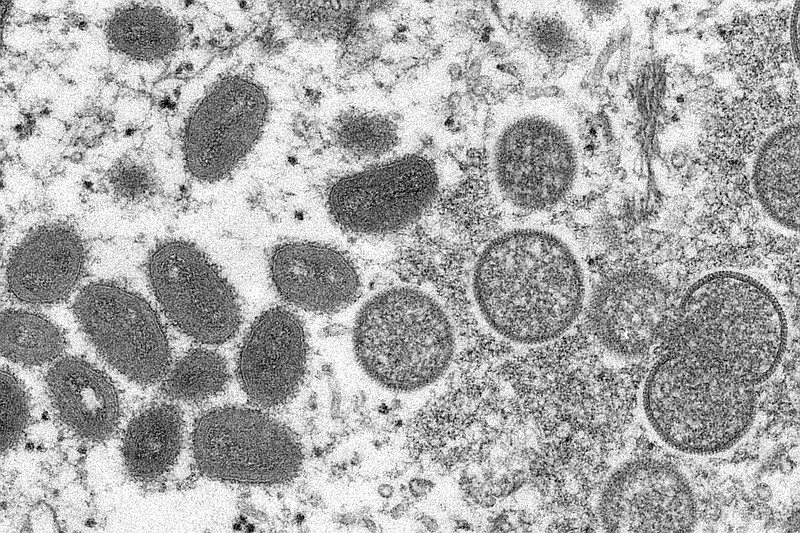Adding insult to injury as we desperately and unsuccessfully - so far - hope to be free of COVID-19, we now learn that we also have three cases of monkeypox confirmed in the Chattanooga area, according to a Tuesday announcement from the Hamilton County Health Department.
Spreading across the U.S. since May, a health department news release describes monkeypox as "a rare but potentially serious viral illness that typically begins with flu-like illness and swelling of the lymph nodes and progresses to a rash on the face and body." It belongs to the same virus family as smallpox, but its symptoms are milder. An infection can last up to four weeks. As of Tuesday, the U.S. had 5,811 confirmed cases, with almost a quarter of them in New York, according to the U.S. Centers for Disease Control and Prevention.
Meanwhile, a rising number of counties in the country and in the Chattanooga region are now at high risk for COVID-19 as omicron subvariant BA.5 continues to drive a nationwide surge in cases, according to the U.S. Centers for Disease Control and Prevention.
Our area's high-risk counties as of Monday included Bradley, Coffee, Franklin, Grundy, McMinn, Meigs, Polk and Rhea counties in Tennessee, Chattooga and Gordon counties in Georgia and DeKalb and Jackson counties in Alabama. Two weeks ago, only nine area counties were considered high risk, according to the CDC.
Hamilton County was considered at high risk for COVID last week, but has been downgraded this week to a medium risk, though case reports to the Hamilton County Health Department remain near their highest level since February. That was when the initial omicron wave resulted in an all-time-record number of reported cases.
And across the United States, counties with high COVID-19 risk levels reached nearly 46% of counties as of Monday.
We shouldn't be surprised, really.
Health officials told us from the beginning of the COVID pandemic that as long as the virus could find new people to infect, it would continue to mutate - always looking to up its survival rate. The BA.5 subvariant, which according to the CDC now makes up roughly 82% of all COVID-19 cases in the country, is the most contagious version of the coronavirus yet and better than any previous strain at evading immunity from previous infection and vaccination.
The CDC recommends that people in high-risk areas wear face masks indoors in public and on public transportation, stay up-to-date with COVID-19 vaccines and get tested and isolate from others if they have symptoms.
But here in the red South, we've chosen to make talk of COVID protection a political dog whistle.
In the Chattanooga region, public face mask use and the vaccination rate remains low. Even now, only 55% of Hamilton County residents are fully vaccinated - meaning we continue to give this virus opportunity to mutate and survive.
Shame on us.
Will we do the same with monkeypox? Sadly, we probably will.
As Washington Post columnist Katrina vanden Heuvel notes, "We have yet to put the coronavirus pandemic behind us, and already we are facing another public health crisis. New York has declared monkeypox a public health emergency as U.S. cases of the disease tick upward. Once again, the United States is unprepared to keep an emerging virus at bay - and just as unprepared to talk about it."
That's because right-wing ideologues like North Georgia's Rep. Marjorie Taylor Greene have falsely labeled monkeypox a sexually transmitted infection. It can be. But also can be transmitted the same way as COVID and other viruses.
Monkeypox can occur with direct physical contact with an infected person or by touching objects, fabrics and surfaces used by someone with the virus. It can also spread through respiratory fluid. Symptoms usually appear within three weeks of exposure.
"We have been anticipating and preparing for monkeypox to reach our community," said Hamilton County Health Department's Dr. Stephen Miller. "Overall, the risk to our population is low, but be mindful that monkeypox is a disease that can affect any individual."
There is treatment, and even a vaccine already, though it is in limited supply and is currently provided only to people who have been in close contact or exposed to an infected person, according to Miller.
As always, careful attention to the advice of health officials is the best, first defense.
